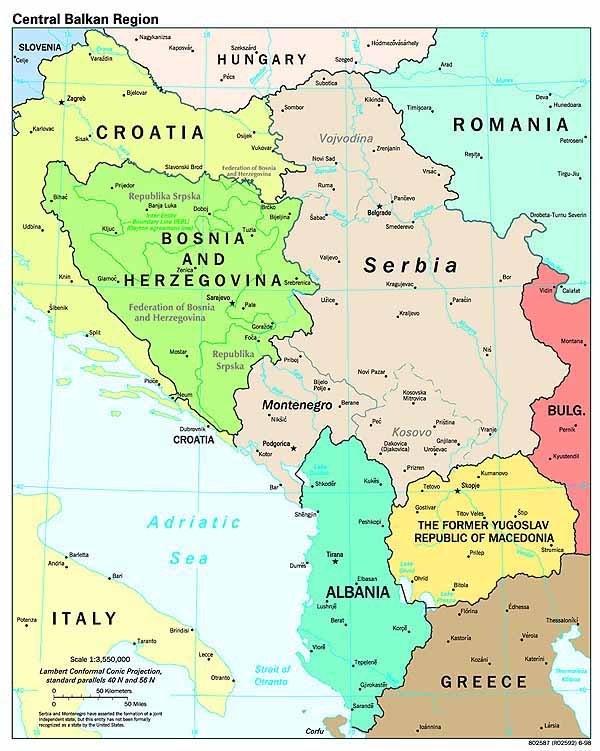Serbs, ethnic Albanians resume talks on Kosovo
Ethnic Albanian and Serbian officials met for the fourth time in Vienna on Thursday to discuss the future of Kosovo.

The two delegations were expected to review proposals regarding the number of Serb and other non-ethnic Albanian communities that would be given a degree of autonomy under a new roadmap for the disputed province.
Three previous rounds of U.N.-mediated talks aimed at reconciling demands by the ethnic Albanian and Serb sides have produced no results.
Ahead of the talks, Dusan Batakovic, a key Serbian negotiator, said his delegation would suggest the creation of at least 17 "communities" run by Serbs and other non-Albanians, including Gypsies, Turks and Muslims of Slavic origin. The ethnic Albanian delegation apparently wants only three to five such municipalities.
"Big municipalities, substantial municipalities are the main criteria for us," Kosovo's deputy Prime Minister Lutfi Haziri said ahead of the talks.
The ethnic Albanian delegation also wants a unified system of local government that would be more or less ethnically neutral.
Serbian officials insist that Kosovo Serbs should be allowed to run their own communities, link up with other Serb areas, maintain special ties to Belgrade and receive guarantees for the security, freedom of movement and right of return of Serb refugees who fled the province during and after the 1998-99 war.
Ethnic Albanians, who comprise about 90 percent of Kosovo's population of 2 million, want full independence for the province. But Serbia insists Belgrade must retain some control over the province.
A key stumbling point likely will be the fate of Kosovska Mitrovica, Kosovo's only ethnically divided town. Serbs would like a division of the town into a Serbian-controlled northern part and an ethnic Albanian-run southern part.
Ethnic Albanians oppose any formal division, fearing it could set a precedent leading to the partition of the rest of the province.
Haziri has said that his delegation offered the creation of two municipal bodies in Kosovska Mitrovica governed by a single executive council that would be run by an international administrator for the next two or three years, reports the AP.
I.L.
Subscribe to Pravda.Ru Telegram channel, Facebook, RSS!


